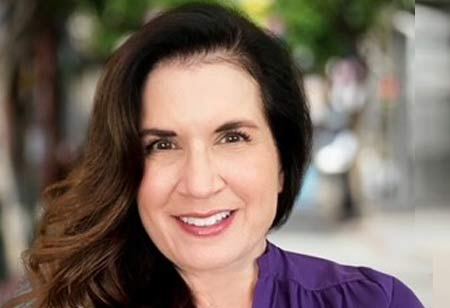When an adult has a serious medical condition, their loved ones primarily focus on the patient’s needs. It is understandable that amid the chaosof the situation, the needs of the children loved by the seriously and/or terminally ill or injured adult are often not considered.
Whether the patient is a parent, grandparent, aunt or uncle, adult sibling, or beloved family friend, they are very important to the children who love them. During these crises, the emotional and psychosocial needs of the children are often minimized and overlooked. Not because the adults don’t care, but more likely because they don’t know what their children need or how to support them.And the thought of having such a difficult conversation with their children can be unfathomable, so sometimes they try to rationalize it away.
The kids are too young to understand,so there’s no reason to upset them.
We can tell the kids that Grandpa went on a trip.It will traumatize them if theyknow he got shot.
Children get over things quickly. We told them their aunt might die,butsince they were playing, they must be okay.
Like adults, children and teenagers cope best when given honest information.During their person’s serious medical journey, it is essential to be open and honest with children and teens.Thatdoesn’t mean they needallthe details. But they do need details that are developmentally appropriate and easy to understand.
How to Tell Them
Children listen to conversations and may even read texts or emails when theyknow something big is happening and want answers. If parents don't provide information, children and teens will try to find it on their own. When trusted adults offer them a safe space to talk about it, they will return to them with questions later because they know they’ll get the truth.
Start the conversation by first finding out what they know. Then, confirm whether it is accurate, address any misconceptions, and answer their questions. If you don't know the answer, it’s okay to them you don't know. That is much better than making something up so that you can give them an answer.Tell them you’ll let themknow if/when you get those answers.
Here are some conversation starters:
I’ve had a lot of doctor’s appointments lately, and you know that I’m not feeling very well. Can you tell me what you’ve heard?
Sometimes, when kids find out their mommy has cancer, they wonder if she is going to die. I really hope I don't die, and I'm doing everything the doctors want me to do to try to get better. But if I find out that I can't get better and that I’m going to die from this, I promise that I will tell you.
You know that Gramps has been sick for a long time and is in the hospital. I wonder if you have any worries or want to know more about what's happening.
Common Concerns
As you can imagine, children and teens often have concerns when their person has a serious medical condition. Three concerns are common among children and teenagers.
#1 Can I catch it?
To help children understand illnesses aren’t always contagious, you can explain their person has abig sickversus a little sick. For example:
Cancer is a big sick,and you can’t catch it like you can catch a cold, chicken pox, or a tummy bug. Those are little sicks, and you can catch little sicks from other people. A little sickusually goes away quicklyafter resting at home andtaking some medicine. But abig sicklike cancer needsstrong medicine, and the person mightneed to stay in the hospital.But you can’t catch cancerfrom them.
#2 Did I cause it?
Children are magical thinkers, but to be honest, adults are often magical thinkers, too. Children (sometimes even adults) might believe they made their person sick. We need to explain that nothing they said or did could have caused their person to get theirbig sick.
Navigating an adult's serious medical condition with the children who love them isn't easy, but it is so important.
An example of magical thinking: A little girl mixed up the family toothbrushes, accidentally using her dad's toothbrush, and he used hers. Dad had a heart attack later that day, and for several weeks, thelittle girl was afraid to tell her mom that she ‘causeddaddy’sheart to attack him.'
#3 Who is going to take care of me?
Children need to feel safe and secure. But they maynot be able to express that concern in a straightforward manner. Instead, they may express concern by discussing disruptions to their typical routine. They might say, for example,Mommy takes me to school every day. Since she is in the hospital, does that mean I can’t go to school?There is a heart-tugging question behind that question, and that is, Will someone be here to take care of me and to love me?
Helping children understand they are safeis essential to their well-being. They need to know that someone will be there to care for them and to love them. We don’t want to make a promise that we can’t guarantee, especially since a serious medical condition may not be curable. But we can reassure them and be honest by explaining that No matter what happens, someone will be here to love and care for you.
Navigating an adult's serious medical condition with the children who love them isn't easy, but it is so important. Always lead with truth and honesty, seek guidance from professionals with child development expertise, and remember you are human. You may have some missteps or say the wrong thing because you don't know what else to say. But once you recognize the error, talk to your children and teens and tell them you made a mistake. Owning the mistake with them can make all the difference, and it will help them know that they can trust that you are telling them the truth. As hard as it can be, the truth is what we all need.



